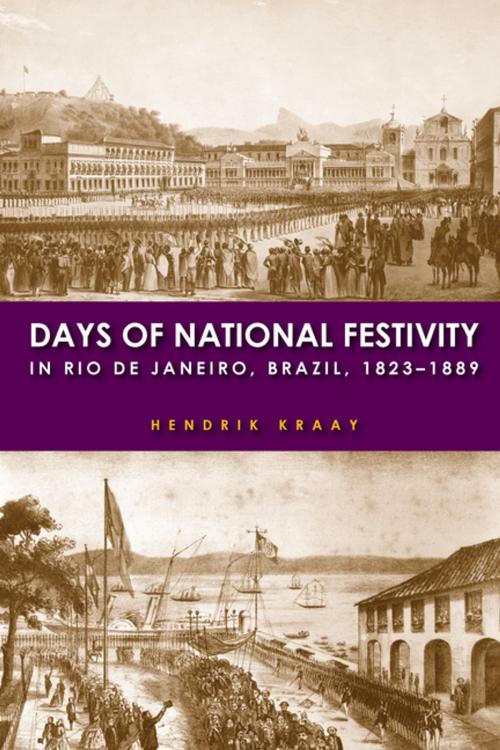Days of National Festivity in Rio de Janeiro, Brazil, 1823–1889
Nonfiction, History, Americas, South America| Author: | Hendrik Kraay | ISBN: | 9780804786102 |
| Publisher: | Stanford University Press | Publication: | May 29, 2013 |
| Imprint: | Stanford University Press | Language: | English |
| Author: | Hendrik Kraay |
| ISBN: | 9780804786102 |
| Publisher: | Stanford University Press |
| Publication: | May 29, 2013 |
| Imprint: | Stanford University Press |
| Language: | English |
Official and popular celebrations marked the Brazilian empire's days of national festivity, and these civic rituals were the occasion for often intense debate about the imperial regime. Hendrik Kraay explores the patterns of commemoration in the capital of Rio de Janeiro, the meanings of the principal institutions of the constitutional monarchy established in 1822–24 (which were celebrated on days of national festivity), and the challenges to the imperial regime that took place during the festivities. While officialdom and the narrow elite sought to control civic rituals, the urban lower classes took an active part in them, although their popular festivities were not always welcomed by the elite. Days of National Festivity is the first book to provide a systematic analysis of civic ritual in a Latin American country over a long period of time—and in doing so, it offers new perspectives on the Brazilian empire, elite and popular politics, and urban culture.
Official and popular celebrations marked the Brazilian empire's days of national festivity, and these civic rituals were the occasion for often intense debate about the imperial regime. Hendrik Kraay explores the patterns of commemoration in the capital of Rio de Janeiro, the meanings of the principal institutions of the constitutional monarchy established in 1822–24 (which were celebrated on days of national festivity), and the challenges to the imperial regime that took place during the festivities. While officialdom and the narrow elite sought to control civic rituals, the urban lower classes took an active part in them, although their popular festivities were not always welcomed by the elite. Days of National Festivity is the first book to provide a systematic analysis of civic ritual in a Latin American country over a long period of time—and in doing so, it offers new perspectives on the Brazilian empire, elite and popular politics, and urban culture.















